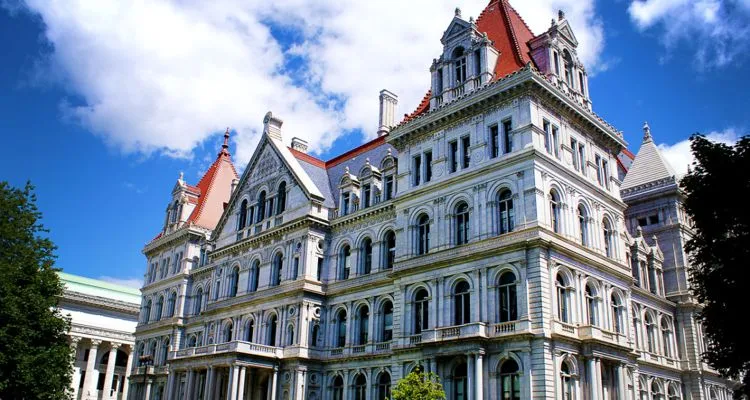The New York State Senate has passed a bill to prevent prosecutors from ‘putting rap lyrics on trial.’
The bill passed the NY Senate by a 38-23 vote in favor of Senate Bill S7527, known as ‘Rap Music on Trial.’ The bill must pass the state assembly before it can be enacted into law. The bill would protect artists and content creators from having their lyrics wielded against them by prosecutors.
University of Richmond Professor Erik Nielson has found a minimum of 28 cases of New York criminal prosecutors citing rap lyrics as evidence since 2017. “As recently as last week, the Fulton County District Attorney in Atlanta allowed prosecutors to submit rap music lyrics from Young Thug in an attempt to prove the rapper’s involvement in a criminal operation,” a press release reads, citing an ongoing case in Georgia.
The legislation would seek to protect freedom of creative expression in New York by prohibiting prosecutors from using rap lyrics as criminal evidence against a person “without clear and convincing proof that there is a literal, factual nexus between the creative expression and the facts of the case.”
New York State Senator Brad Hoylman says, “Art is creative expression, not a blueprint of criminal plans. Yet we’ve seen prosecutors in New York and across the country try to use rap lyrics as evidence in criminal trial, a practice upheld this year by Young Thug’s prosecutors.”
“It’s time to end the egregous bias against certain genres of music – like rap – and protect the First Amendment rights of all artists,” Hoylman continues. “I’m proud the New York senate passed this legislation so that New York leads the way in treating artists fairly, no matter their race or gender.”
Senator Jamaal Bailey adds, “Rap should not be treated differently from any other art form; yet in courtrooms across the country, artists have been unfairly targeted for simply exercising their right to creative expression.”
“Presuming a defendant’s guilt based solely on musical genre or creative expression is antithetical to our foundational rights and perpetuates the systemic racism that is embedded into the criminal justice system through discriminatory conflations of hip-hop and rap with criminality.”
A companion bill is pending before the New York Assembly and awaiting a vote. After that, the bill needs to be passed by the full assembly, with differences between the two bills being ironed out before heading to the New York governor to be inked into law.

